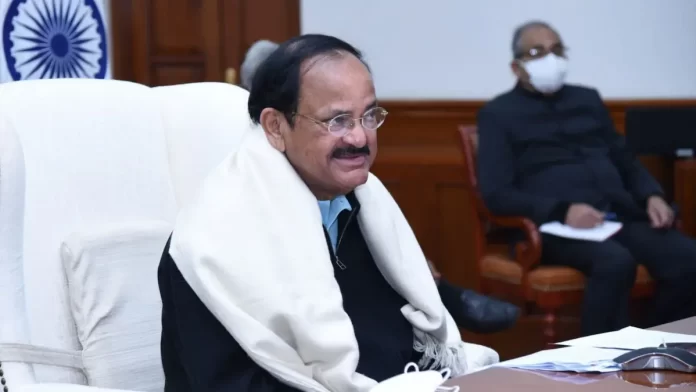Vice President of India M. Venkaiah Naidu on Sunday visited the National Institute for the Empowerment of Persons with Intellectual Disabilities (Divyangjan), Secunderabad. He was received by Special Children of NIEPID.
He visited the newly established Cross-Disability Early Intervention Centre & Special Education Centre which offers comprehensive rehabilitation, clinical and educational services to children with intellectual disabilities and other associated conditions.
The Vice President oversaw the digital classrooms and various services provided by NIEPID.
He appreciated various activities and services which are provided for persons with intellectual and developmental disabilities services under the guidance of the Ministry of Social Justice and Empowerment.
In his address, he stated that teachers and staff working with these children should not consider this as a mere salaried job but take it as a blessing given by the almighty to shape the future of these kids with different abilities.
He emphasized that there is a dire need to create awareness about the special disabilities that these children have and remove misconceptions and stigma associated with disability.
He also wished NIEPID should collaborate with organizations like the Centre for Cellular and Molecular Biology (CCMB) for conducting advanced research in the field of early detection, identification, and prevention of developmental disabilities.
He also emphasized the role of civil society, the private sector, and NGOs in providing an inclusive right based society for Divyangjan.
He also stated the importance of having accessible public buildings throughout the country so that Divyangjan can lead independent life and access all facilities like any other citizen.
Shri M. Venkaiah Naidu distributed Aids and assistive devices such as Teaching Learning Material Kits, Wheelchairs, Hearing aids, and prostheses to the identified eligible beneficiaries under the ADIP scheme.
The Vice President congratulated NIEPID and its staff for providing wonderful services to people with intellectual disabilities and urged the faculty, teachers, and staff to work with new zeal and enthusiasm to take care of the special children.
